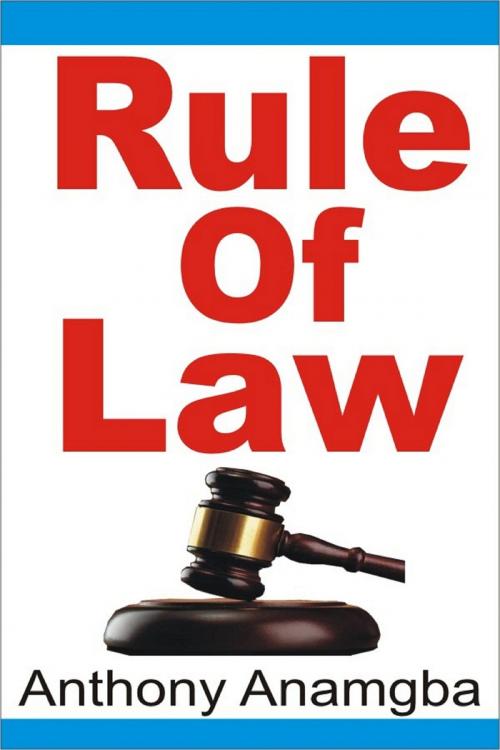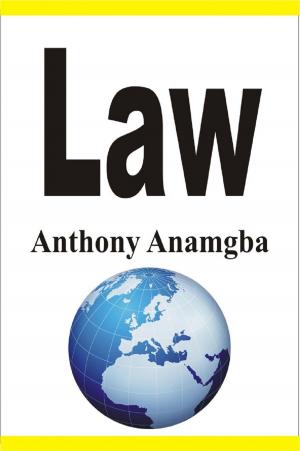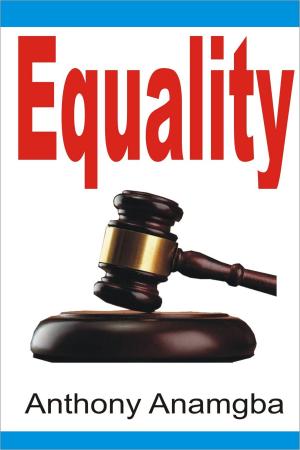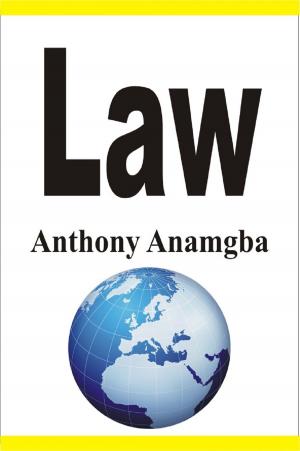| Author: | Anthony Anamgba | ISBN: | 9781370099238 |
| Publisher: | Anthony Anamgba | Publication: | September 1, 2017 |
| Imprint: | Smashwords Edition | Language: | English |
| Author: | Anthony Anamgba |
| ISBN: | 9781370099238 |
| Publisher: | Anthony Anamgba |
| Publication: | September 1, 2017 |
| Imprint: | Smashwords Edition |
| Language: | English |
Rule of law is the absolute supremacy of ordinary law and the equal subjection of all classes to the ordinary law as administered by the law courts.
It is in this lucid manner that this book will teach you rule of law.
It clearly explains the features of rule of law. They include the supremacy of ordinary law, the equality before the law, and the human rights.
It analyzes the supremacy of ordinary law. This strand of thought states that no one shall be punished or made to suffer for breaking the law unless it is established by a court of law.
It appraises the equality before the law. This strand of thought states that every person, both the governor and the governed, shall be subject to the ordinary law of the land.
It evaluates the human rights. This strand of thought states that the rights of citizens are inalienable and fundamental. They include the right to life, right to dignity of human person, right to fair hearing, right to peaceful assembly and association, and freedom of expression and the press.
It discusses the duties of citizens implicit in the rights of citizens. They include paying one’s taxes regularly, obeying the laws of the land, defending the State during external attack, giving evidence in a law court, and voting during an election.
Finally, it explores the distinctive limitations to rule of law. They include the state of emergency, laws of libel and sedition, prolonged police investigation, tribunal and delegated legislation.
Rule of law is the absolute supremacy of ordinary law and the equal subjection of all classes to the ordinary law as administered by the law courts.
It is in this lucid manner that this book will teach you rule of law.
It clearly explains the features of rule of law. They include the supremacy of ordinary law, the equality before the law, and the human rights.
It analyzes the supremacy of ordinary law. This strand of thought states that no one shall be punished or made to suffer for breaking the law unless it is established by a court of law.
It appraises the equality before the law. This strand of thought states that every person, both the governor and the governed, shall be subject to the ordinary law of the land.
It evaluates the human rights. This strand of thought states that the rights of citizens are inalienable and fundamental. They include the right to life, right to dignity of human person, right to fair hearing, right to peaceful assembly and association, and freedom of expression and the press.
It discusses the duties of citizens implicit in the rights of citizens. They include paying one’s taxes regularly, obeying the laws of the land, defending the State during external attack, giving evidence in a law court, and voting during an election.
Finally, it explores the distinctive limitations to rule of law. They include the state of emergency, laws of libel and sedition, prolonged police investigation, tribunal and delegated legislation.















